Understanding Vehicle Exhaust Filters
Vehicle exhaust filters, also known as catalytic converters, are integral components of a vehicle's exhaust system. Their primary role is to convert toxic gases and pollutants in the vehicle's exhaust into less harmful emissions before releasing them into the environment. These filters are specifically designed for internal combustion engines, which produce exhaust gases containing unburned hydrocarbons, carbon monoxide, and nitrogen oxides. Through a combination of chemical reactions and catalysts, exhaust filters help vehicles comply with emissions standards, thereby promoting cleaner air.
The operational mechanism of exhaust filters revolves around catalytic conversion. As the hot exhaust gases flow over the filter's surface, the catalyst within the converter initiates a series of chemical reactions to dismantle the harmful components. For example, a reduction catalyst interacts with any unburned fuel to create carbon dioxide and water, while an oxidation catalyst transforms carbon monoxide into carbon dioxide. This process not only minimizes the emission of pollutants but also enhances the engine's efficiency and fuel economy.
Vehicle exhaust filters play a critical role in safeguarding both the environment and human health. Given that vehicles are significant contributors to air pollution, particularly in urban areas, these filters are pivotal in reducing the environmental impact of transportation. Moreover, by filtering out harmful substances, they help preserve the health of drivers and passengers by ensuring the circulation of clean air within the vehicle cabin.
Varieties of Vehicle Exhaust Filters
Diverse types of vehicle exhaust filters cater to varying filtration requirements and vehicle specifications. Here are some common variants:
-
Catalytic Converter: A well-known exhaust filter type featuring a catalyst that converts pollutants into less harmful compounds. These converters are prevalent in gasoline-powered vehicles to diminish nitrogen oxides, carbon monoxide, and unburned hydrocarbons emissions.
-
Particulate Filter (DPF): Tailored for diesel engines, DPFs trap and retain particulate matter (PM) without significantly impeding exhaust flow. They necessitate periodic regeneration to incinerate accumulated soot and ash.
-
Gasoline Particulate Filter (GPF): A modern technology aimed at gasoline engines, GPFs sift out fine particulates from the exhaust using a highly porous filter medium, effectively reducing emissions and enhancing air quality.
-
Active Charcoal Filter: Equipped with activated charcoal layers that absorb and neutralize odors and pollutants from the air. They are commonly used alongside other filtration systems or as secondary filters to further purify exhaust gases.
-
Hybrid and Electric Vehicle Filters: Tailored for vehicles employing alternative fuel sources like hybrid or electric systems, these filters are designed to manage the complex emission blend generated by such vehicles.
Choosing the Right Vehicle Exhaust Filter
Selecting the suitable vehicle exhaust filter entails a thorough evaluation of factors such as vehicle type, emission standards, operational requisites, and budgetary constraints. For businesses procuring these filters via a B2B platform such as Alibaba.com, understanding their clientele's diverse needs and the products' technical specifications is paramount.
Concerning vehicle compatibility, it is imperative for businesses to ensure that the chosen filter aligns with the specific make and model of the intended vehicle or machinery, including compatibility with various brands like Toyota or Honda.
Emission standards play a pivotal role in determining the appropriate exhaust filter for business operations. Opting for a filter that meets or surpasses the mandated emission standards in the region or industry sector is crucial.
Operational requirements, such as temperature resilience and pressure thresholds, should dictate the selection process. Some filters are engineered to endure high temperatures over extended periods without performance degradation, while others offer robust filtration under high-pressure conditions.
Lastly, budget considerations are significant for all businesses. Leveraging Alibaba.com's extensive supplier network and product range enables businesses to find competitive prices aligning with operational budgets while upholding quality standards.
Vehicle Exhaust Filters on Alibaba.com
Alibaba.com serves as a global marketplace connecting businesses with a wide array of vehicle exhaust filters tailored for diverse applications. With over two decades of experience facilitating B2B transactions across more than 190 countries and regions, Alibaba.com provides unmatched access to products meeting various commercial needs within the automotive sector. The platform's extensive inventory includes filters crafted from durable materials like stainless steel and carbon steel, ensuring sustained performance even in demanding operational environments.
Recognizing the unique requirements of every business, Alibaba.com offers a vast selection encompassing filters with distinct features such as varied shapes, inlet/outlet positions, and filtration efficiencies. Prioritizing quality and reliability, Alibaba.com verifies suppliers and provides Trade Assurance – a service safeguarding payments until delivery confirmation – instilling confidence in buyers sourcing these critical components.
Through Alibaba.com's user-friendly interface and mobile compatibility, businesses can seamlessly navigate products and communicate with suppliers in their local language, streamlining international trade by facilitating efficient product discovery without language barriers. Whether seeking filters for individual vehicles or bulk quantities for commercial use, Alibaba.com serves as the gateway to fulfilling those requirements reliably and effectively.
Frequently Asked Questions about Vehicle Exhaust Filters
What is a vehicle exhaust filter, and how does it function?
A vehicle exhaust filter is a device designed to reduce emissions from a vehicle's exhaust system by directing exhaust gases through a filter media that captures pollutants before their release into the atmosphere.
Why should I contemplate installing a vehicle exhaust filter in my fleet?
Installing a vehicle exhaust filter aids in complying with local and international emission standards, reducing the carbon footprint, and enhancing air quality for your fleet and drivers.
How can I determine the appropriate size of a vehicle exhaust filter for my vehicles?
The filter size is typically determined by the make, model, and engine specifications of your vehicles. It is advisable to consult the manufacturer guidelines or a qualified mechanic to ensure the correct size selection.
Can vehicle exhaust filters be utilized in all vehicle types?
Vehicle exhaust filters are versatile and can be employed in various vehicle types, including cars, trucks, SUVs, and commercial vehicles utilizing diesel engines.
What are the indications that a vehicle exhaust filter necessitates replacement?
Common indicators include diminished engine performance, reduced fuel efficiency, unusual exhaust system noises, visible smoke or vapors, and heightened emissions during inspections.
How frequently should vehicle exhaust filters be replaced?
The replacement frequency for vehicle exhaust filters varies based on driving conditions, vehicle type, filter material, and quality. Adhering to the manufacturer's guidelines specific to your model is essential.
Are there different types of vehicle exhaust filters available?
Indeed, there are various types of vehicle exhaust filters, including basic/standard, advanced/high-efficiency/carbon, and diesel particulate filters, each serving distinct purposes based on material composition and vehicle application.
How do I choose between different types of vehicle exhaust filters?
Select based on your fleet's operational requirements. Basic/standard filters suffice for standard use, whereas advanced/high-efficiency/carbon filters may be necessary for demanding applications or regulatory compliance adherence.
Is it essential to have both a particulate filter and a carbon filter in a vehicle exhaust filter?
For most vehicles, having both filters is recommended as particulate filters primarily target soot and smoke, while carbon filters reduce hydrocarbons and particulates that can impact air quality.
Can I customize my vehicle exhaust filter order to meet specific requirements?
Many suppliers on Alibaba.com offer customization options for bulk orders of vehicle exhaust filters. Discuss your specific needs with suppliers to ascertain if they can accommodate custom requests.
Which materials are commonly used in constructing vehicle exhaust filters?
Commonly utilized materials include stainless steel, plastic, iron, and occasionally specialized metals for certain components. The material choice often hinges on the filter type and intended use.
How does driving style influence the longevity of a vehicle exhaust filter?
Driving style can impact the lifespan of a vehicle exhaust filter. Aggressive driving or frequent stop-and-go traffic may necessitate more frequent filter replacements due to heightened pollutant accumulation and heat exposure.

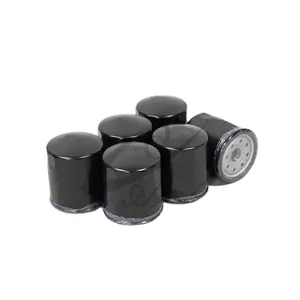






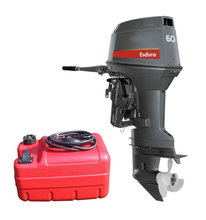
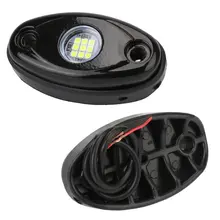


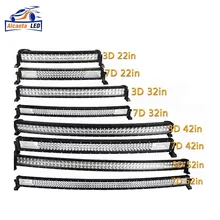


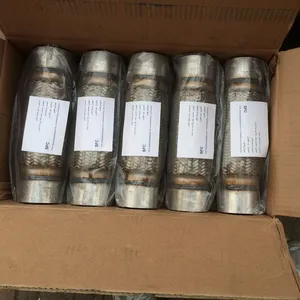



























 浙公网安备 33010002000092号
浙公网安备 33010002000092号 浙B2-20120091-4
浙B2-20120091-4